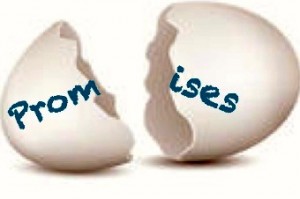 Confidentiality is fundamental to the mediation process. Without the promise of confidentiality, employers and employees would be much less likely to use the mediation process to resolve their disputes. Without the promise of confidentiality, mediation would not be nearly as effective or widely used as it is today.
Confidentiality is fundamental to the mediation process. Without the promise of confidentiality, employers and employees would be much less likely to use the mediation process to resolve their disputes. Without the promise of confidentiality, mediation would not be nearly as effective or widely used as it is today.
A dispute in the discrimination lawsuit pending against the Greenberg Traurig law firm stands as a reminder that promises can be broken.
Confidentiality Agreement Signed at Mediation
Before the lawsuit was filed, the parties unsuccessfully attempted to mediate the case on October 10, 2012. Before the mediation started, the parties signed a Confidentiality Agreement that provided in pertinent part:
“In order to promote communication among the parties and the mediator and to facilitate settlement of the dispute, all parties agree that ….
All statements made during the course of the mediation or in mediator follow-up thereafter at any time prior to complete settlement of this matter are privileged settlement discussions, are made without prejudice to any party’s legal position, and are non-discoverable and inadmissible for any purpose including in any legal proceeding.
No aspect of the mediation shall be relied upon or introduced as evidence in any arbitral, judicial, or other proceeding, including, but not limited to:
(a) Views expressed or suggestions made with respect to a possible settlement of the dispute;
(b) Admissions made in the course of the mediation proceedings;
and (c) Proposals made or views expressed by the mediator or the response of any party.
Since the parties are disclosing sensitive information in reliance upon this agreement of confidentiality, any breach of this agreement would cause irreparable injury for which monetary damages would be inadequate. Consequently, any party to this agreement may obtain an injunction to prevent disclosure of any such confidential information in violation of this agreement.
Any party breaching this agreement shall be liable for and shall indemnify the non-breaching parties and the mediator for all costs, expenses, liability, and fees, which may be incurred as a result of such breach.
To the extent that they are applicable, state law and/or the Federal Rules of Evidence apply to this mediation.”
(Emphasis added).
Broken down more simply – the parties to the mediation promised each other that they would keep secret everything that happened at the mediation and in any follow-up discussions to the mediation. They promised that they would not use information from the mediation “for any purpose including in any legal proceeding.”
Greenberg Traurig Accused of Submitting Mediation Information in Subsequent Legal Proceeding
In an Objection filed with the court on January 11, 2013, Greenberg Traurig is accused of breaking its promise. More specifically, the law firm is accused of disclosing information in violation of Federal Rules of Evidence and in violation of the signed Mediation Confidentiality Agreement. Here is an excerpt from the Objection:
“GT’s Filing includes throughout specific details of the parties’ confidential settlement communications. Details include (1) characterizations and purported quotations of exchanges between Counsel during negotiations, (2) substantive topics covered in mediation briefings, and (3) allegations regarding actions taken and choices made by the parties during negotiations.”
The promise of confidentiality lies at the heart of the mediation process. Indeed, the EEOC calls it a “core principle,” stating that “[c]onfidentiality allows the parties to freely engage in candid, informal discussions of their interests and concerns in order to reach the best possible resolution of the dispute. It also allows the parties to speak openly without fear that statements made during mediation will be used against them in any subsequent proceeding.” EEOC’s Handbook for its Resolve Program.
As one commentator has noted, however, this promise of mediation confidentiality, is “wrought with a complex legal analysis where federal courts have contradicted one another.” We will all be watching as the court analyzes the issue in the Greenberg lawsuit.
______________________________________________________________
 Workplace Investigations Group has a national panel of professional workplace investigators who have a minimum of ten years of employment litigation experience. As such, wherever the workplace issue arises, we provide you with an investigator who can respond to the regional need quickly and competently. For more information: www.Workplace-Investigations-Group.com
Workplace Investigations Group has a national panel of professional workplace investigators who have a minimum of ten years of employment litigation experience. As such, wherever the workplace issue arises, we provide you with an investigator who can respond to the regional need quickly and competently. For more information: www.Workplace-Investigations-Group.com

Very interesting article, Lorene. The issues related to the Objection, and the filing by Greenberg Traurig that prompted the Objection, go to the heart of what mediation confidentiality means. Depending on how the issues are resolved, parties may be more or less likely to accept the opportunity to mediate disputes in the future. Given how important mediation has become, it would be unfortunate if this matter were to chill litigants’ willingness to mediate future disputes.